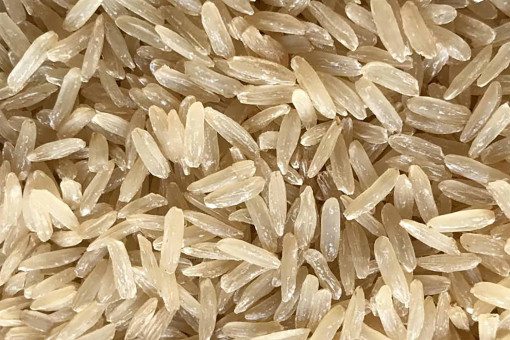Minister outlines farming challenges

Thai rice is now under threat of losing its identity due to the popularity of alien rice strains smuggled in from neighbouring countries, according to the agriculture minister.
As a keynote speaker at an annual Thai rice conference organised by the Thai Rice Foundation Under Royal Patronage, Agriculture and Cooperatives Minister Thammanat Prompow said he was concerned about the future of Thai rice, saying farmers remain mired in poverty and debt despite rice generating vast amounts of revenue for the country.
He said Thailand exports eight million tonnes of rice annually, making around 140 billion baht. However, 4.68 million farmer families face huge financial burdens due to higher investment costs, including the increased price of fertilisers, pesticides, and labour.
Many farmers have switched to planting alien rice strains in the quest for higher yields, instead of domestic strains, which puts the purity of domestic strains at risk, he said. Thai rice is known for its soft texture, long-shaped grains and aromatic scent.
The alien strains are sometimes found mixed with high-quality Thai rice, which Mr Thammanat has described as “a (vicious) circle that will destroy Thai rice”.
He said the ministry will take action to deal with the problem.
“The ministry will try to ensure Thai rice continues to exist and is planted by farmers. Further investment in the development of domestic rice strains is key so we have better strains of Thai rice in the future, with a high yield and strong resistance to disease and climate change.
“The most important thing is that we maintain the clear identity of Thai rice,” he said.
At the International World Rice Conference held from Nov 28–30 in Cebu, the Philippines, Vietnam once again pipped Thailand for the title of world’s best rice.
Commenting on how the country ceded its position as the country producing the highest-quality rice in the world, Mr Thammanat said the Ministry of Commerce and the private sector decided not to enter the competition this year because the regulations were no longer considered suitable for Thai rice, as they put too much weight on high yield production as an assessment criteria.
At least this served as an important reminder that the country must adapt to global demand, he added.
Natthakit Khongthip, chief of the Department of Rice, said the department has done its job in terms of researching and developing rice strains for a better yield and that offer greater resistance to disease and weather swings.
“By next April, we will announce eight new rice strains to farmers,” he said.
Currently, the department produces 105,000 tonnes of rice seeds and distributes them to farmers, which is still far from the seed requirement of 1.3 million tonnes a year.
Most breeding seeds are from private companies and rice communities, which is around half of the annual requirement. The rest are kept by local farmers.
Meanwhile, Nipon Puapongsakorn, an agricultural expert at the Thailand Development Research Institute (TDRI), said almost half of the rice plantations in the Central region use Vietnamese rice strains due to their higher crop yield of over one tonne per rai and the short harvest life of 90 days, compared to 120 days for Thai rice strains.
Farmers need short-life rice because they want to have an early harvest before the rainy season and accompanying floods.
He suggested the country should help researchers develop more domestic rice strains. Rice from Vietnam has been combined with the genes of other rice from northern Asia to produce higher yields.
“Legal amendments are important if we want to improve our rice strains to compete with others,” Mr Nipon said.

